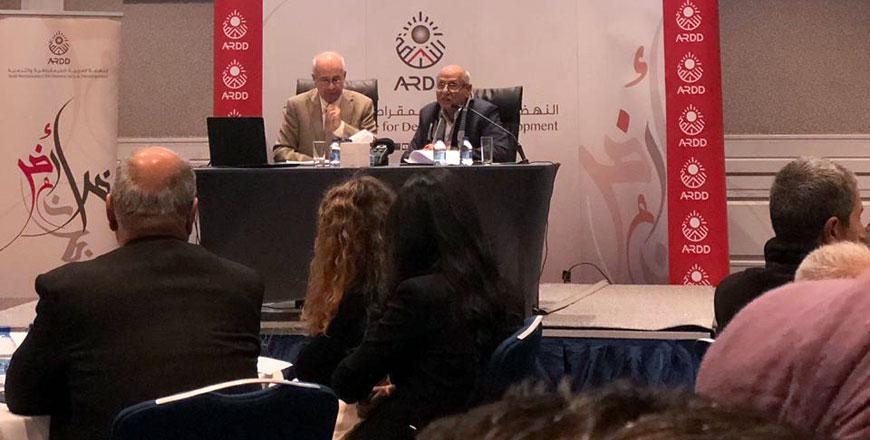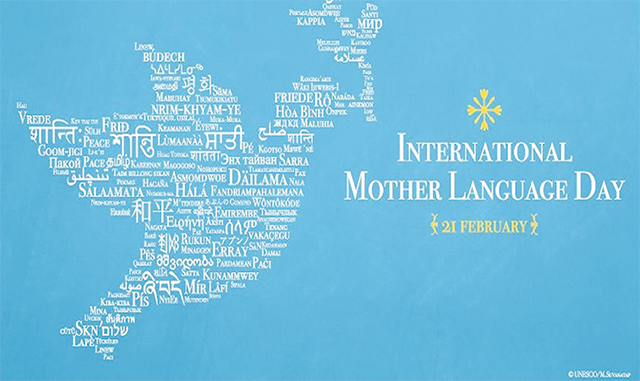You are here
Speakers’ indifference towards Arabic portends its death, linguist warns
By Dana Al Emam - Mar 08,2016 - Last updated at Mar 08,2016
AMMAN — The political, social and intellectual “indifference” of Arabic speakers towards their language puts the once historically renowned language at the risk of dying, according to Tunisian sociologist Altahir Labib.
At a lecture organised by the Abdul Hameed Shoman Foundation on Monday evening, Labib noted that discussions of linguistic topics are no longer an issue of public interest and are nowadays limited to intellectuals and those studying the language.
He attributed Arabic speakers’ lack of interest in their language to a number of factors, including their weak awareness of the correlation between politics and language, as well as the “geopolitical war” among languages.
Labib cited some “superficial and misleading” statistics that depict an internationally advanced status of the Arabic language among other languages, without specifying which dialect of Arabic.
He explained that some studies claim Arabic to rank fourth internationally when considering its 450 million speakers, while another states that Arabic is the second internationally in terms of the number of countries speaking it.
The issue present in these studies, according to Labib, is that they do not recognise the differences between standard and standardised Arabic, in addition to a wide array of dialects, some of which are completely different from one Arab country to another.
However, the linguist highlighted the role of a “political willingness” to revive the language, giving the example of Hebrew as a language that died at some point in history but was revived for the purpose of uniting Jewish settlers who came from several parts of the world to Palestine.
He added that the spread of sciences in other languages has limited the use of the Arabic to the humanities.
This gap was accompanied by an incapability to develop the language through translation and Arabisation of foreign words.
Labib said thousands of languages have died, although some of them were written languages.
There are around 6,000 languages in the world, with estimates that 50 to 90 per cent of them will die before the end of this century, according to the researcher, who explained that the death of a language does not necessarily mean that its speaker will stop using it.
Although the Koran guarantees the survival of the Arabic language, this protection might remain limited to those who engage in religious studies, Labib said.
“I do not see any political will to safeguard the language… and it saddens me that those celebrating the flourishing of Arabic are disturbing it as it lies on its deathbed.”
Related Articles
AMMAN — Marking World Arabic Language Day on Wednesday, and out of the belief that Arabic is central to civic participation among Arab Natio
AMMAN — On International Mother Language Day, celebrated annually on February 21, Jordanian educators emphasised the importance of a strong
AMMAN — Marking World Arabic Language Day, which is celebrated every year on December 18, Jordanians express their mother tongue’s importanc

















